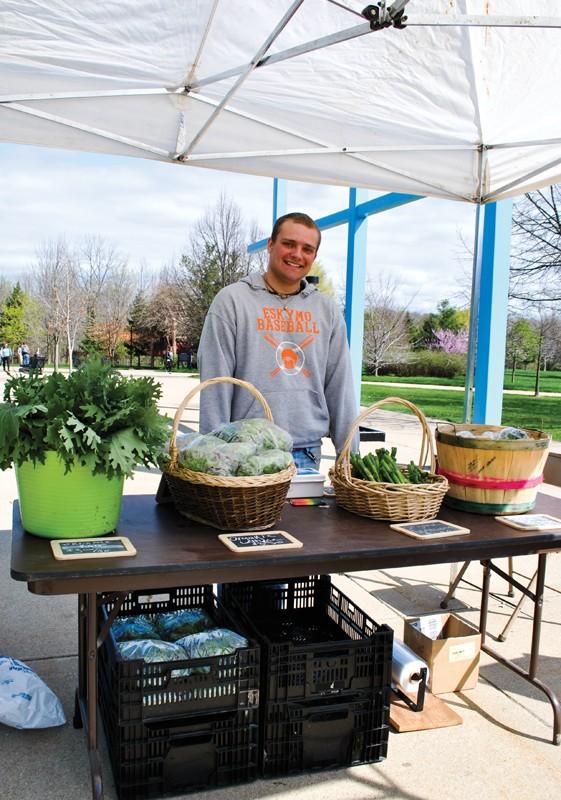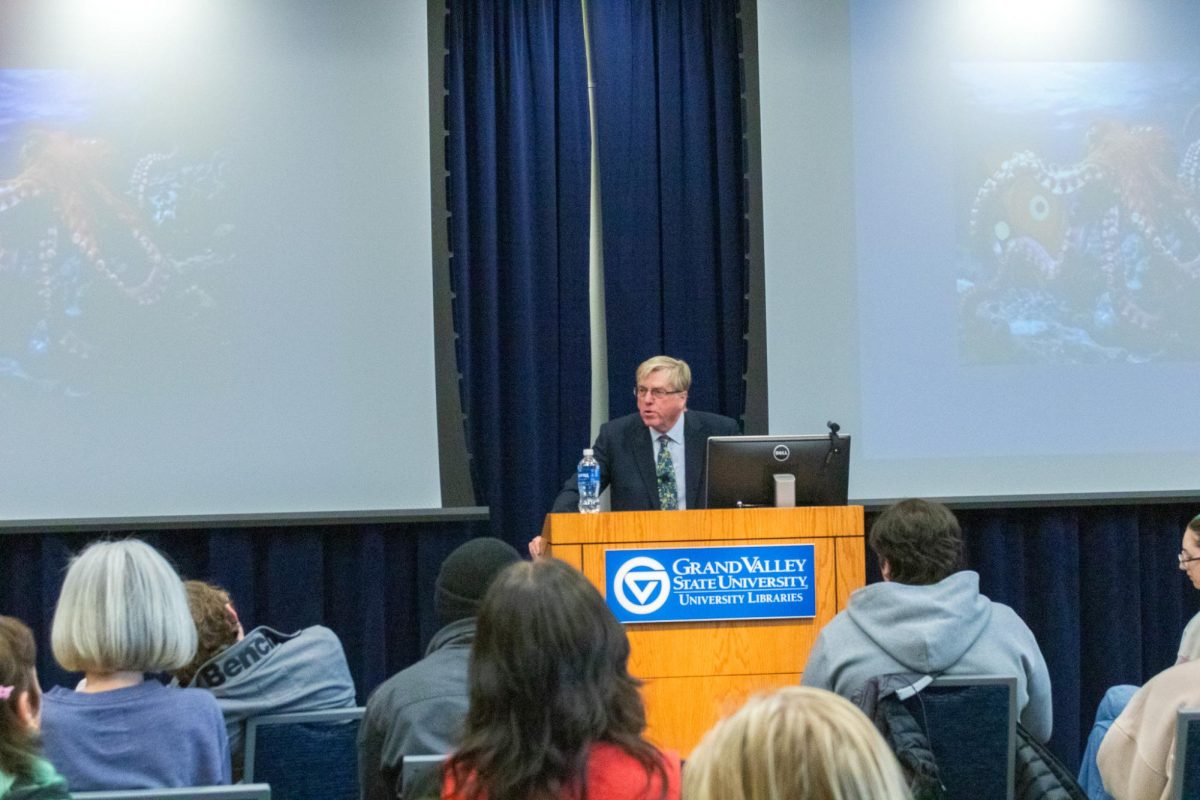Weathering the weather

GVL / Allison Young An organic vegetable booth on the Allendale campus encouraging eating healthy and practicing sustainable agriculture growth.
Mar 29, 2012
With the temperature fluctuating between the 70s and 80s last week and the 50s this week, it’s a mystery as to what next week’s weather has in store.
Despite the dynamic temperatures, those working at the Grand Valley State University Sustainable Agriculture Project have continued to grow crops year round in the Hoop House, which is technology that extends the growing season.
The Hoop House, funded by donations and installed in August 2011, regulates the temperature inside, said Bart Bartels, GVSU campus sustainability manager.
“It is a passive solar technology that captures solar energy and traps it and reradiates it,” said Levi Gardner, Sustainable Agriculture Project manager at GVSU. “The Hoop House allows us to grow a select variety of crops year round, mostly root crops in the winter.”
Gardner said just one week of high temperatures will probably not have a big impact on this year’s growing season, but Bartels is not so sure.
“It’s a bit scary when flowers bloom and insects are out in March,” Bartels said. “I don’t know the full impact it may have because this is unprecedented territory.”
Regardless of the weather, the Hoop House still sees a number of student volunteers. Many students come out to work at the community garden throughout the year for service learning, internships, class requirements or just because they are interested in what is involved in growing crops.
Last year, the Sustainable Agriculture Project had around 400 students volunteer at the garden, Gardner said.
“I come out here because I get to do something tangible about how I feel about food,” said GVSU student Katie Morabito. “I think it’s important for students because they get hands on learning that is not necessarily provided in a lot of classes.”
Working at the Sustainable Agriculture Project gives many students a place where they can learn about agriculture and experiment with it, said Morabito. Many students who work at the garden experience something they have never done before, and it sets an example for others about having healthy food and how to grow it, she said.
“As a university, it is awesome to have a place we can say, ‘this is what agriculture could look like,’” Morabito said. “It is a place that could be the beginning for farmers of the future, for sustainable farmers.”
The Sustainability Community Development Initiative helps to provide support for the garden and makes sustainability on campus a priority, Bartels said.
“Sustainability is important because it is making things better by cutting costs, reducing the environmental impact, and improving the lives of people in the community,” he said.
The Sustainable Agriculture Project is always looking for more volunteers to help out, or even just visitors to come see what is being done at the garden, Morabito said.
“We always enjoy having more people to help out or even just learn more about it,” she said.






















